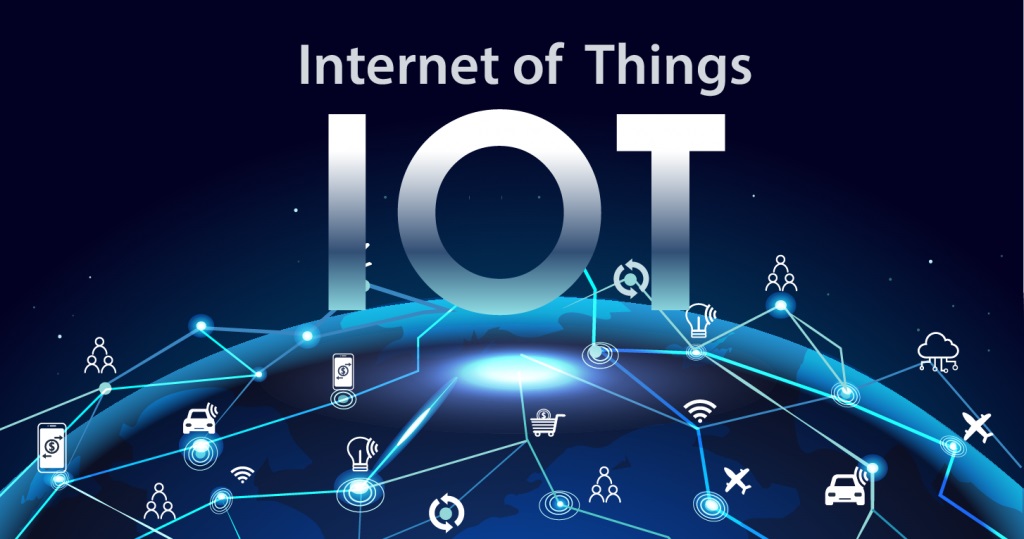
The Internet of Things (IoT) is the interconnectivity of everyday objects through the internet. The term was first coined in 1999, and since then, IoT has experienced rapid growth and technological advancements.
In this blog, we will discuss technological developments, fresh applications, and the possible effects of IoT on society.
Technological Developments in IoT
IoT platforms are cloud-based services that facilitate the integration of IoT devices and data management. These platforms enable organizations to connect devices, collect data, and analyze the information in real time.
Examples of IoT platforms include Amazon Web Services (AWS), Microsoft Azure, and Google Cloud.
IoT solutions refer to the hardware and software systems that facilitate the interconnectivity of devices. These solutions enable organizations to optimize their operations by automating tasks and improving efficiency.
Examples of IoT solutions include smart sensors, drones, and wearables.
Advancements in IoT Hardware
The advancements in IoT hardware in recent years have led to the creation of smaller, cheaper, and more powerful IoT devices, enabling IoT to transform various industries, from healthcare to manufacturing.
One of the key advancements in IoT hardware is enhanced connectivity. IoT devices can now connect to various wireless networks, including cellular, Wi-Fi, Bluetooth, and Low-Power Wide-Area Networks (LPWANs). This enhanced connectivity allows for real-time data collection, analysis, and transmission, making it possible to develop more advanced IoT applications.
Another significant advancement in IoT hardware is reduced power consumption. IoT devices require very little power to operate, and low-power technologies, such as Bluetooth Low Energy (BLE), can operate for years on a single battery charge. This enables the creation of IoT devices deployed in remote locations or places where access to power is limited.
Fresh Applications of IoT
Numerous fresh applications for IoT are transforming various industries, and healthcare, agriculture, manufacturing, and smart cities are some of the most common ones.
Healthcare
In healthcare, IoT has the potential to revolutionize patient care by enabling remote patient monitoring, personalized treatments, and predictive analytics. For instance, IoT devices such as wearable sensors and health trackers can collect real-time patient health data, providing more accurate diagnoses and treatments.
Additionally, IoT can facilitate real-time communication between patients and healthcare providers, enabling patients to receive treatment without having to leave their homes.
Agriculture
In agriculture, IoT can improve farming practices by enabling precision farming. IoT sensors can collect data on soil moisture, temperature, and other environmental factors, which can be used to optimize crop growth and increase yields.
Additionally, IoT can facilitate real-time monitoring of crop growth and health, enabling farmers to detect and address issues early on.
Manufacturing
In manufacturing, IoT can improve processes by automating tasks and improving efficiency. IoT sensors can monitor equipment performance, detect faults, and enable predictive maintenance, reducing downtime and costs.
Additionally, IoT can facilitate real-time monitoring of supply chain processes, enabling manufacturers to track products from production to delivery.
Smart Cities
In smart cities, IoT can create smarter, more sustainable cities by enabling real-time energy consumption, traffic flow, and air quality monitoring. This data can be used to optimize city infrastructure, reduce congestion, and improve quality of life.
Additionally, IoT can facilitate real-time communication between citizens and city officials, enabling citizens to report issues and receive updates on city services.
Possible Effects of IoT on Society
Economic Impact
IoT has the potential to create significant economic value by improving efficiency and reducing costs. IoT devices can automate tasks, improve asset utilization, and reduce maintenance costs, leading to organization cost savings.
Security Concerns
IoT devices are vulnerable to cyber attacks, compromising data privacy and leading to financial losses. As IoT devices become more prevalent, it is essential to develop robust security measures to protect against potential threats.
Social Impact
IoT can have significant social impacts, including changes in work, increased privacy concerns, and shifts in social norms. These impacts will require careful consideration as IoT adoption continues to grow.
Conclusion
In conclusion, IoT is a rapidly developing technology that is transforming many aspects of society. . Technological developments in IoT platforms, solutions, and hardware have enabled fresh applications in healthcare, agriculture, manufacturing, and smart cities. However, the possible effects of IoT on society, including economic impact, security concerns, and social impact, should be carefully considered. The future of IoT is undoubtedly exciting, and its impact on society will only continue to grow. As technology advances, it will be essential to keep in mind the ethical, legal, and social implications of its widespread use.
